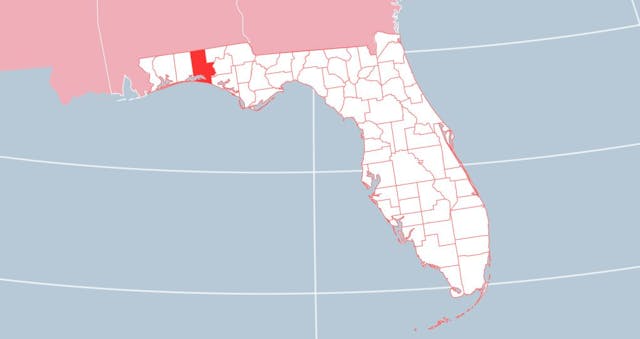Rehabs in Walton
Walton County is in the U.S. state of Florida which is situated on the Emerald Coast. It borders the Gulf of Mexico in the south. The population was 75,305 as of the 2020 Census. In DeFuniak Springs, the county seat is located.
The United States has the highest number of drug-related deaths in the world, with over 40,000 reported deaths per year. Sadly, Florida's addiction and drug-related fatality rates are also rising.
Seek the care of a healing plan to help you end the abuse. Keep reading the article and learn how to live a drug-free life if you or someone you love is suffering from addiction.
Substance Use Treatment
According to research made by America's Health Rankings, the number of deaths over the past three years in Florida has increased overall by 62%.
It is important to understand the many different facets of the dependency that you have to manage while dealing with this issue. During the healing process, numerous mental and emotional challenges must be addressed and managed.
Detox
It is proper to regard detox as a valid medical process. For those who have severe physical and mental withdrawal symptoms, hospitals offer a safe, discrete, cozy, and supportive environment. In the event of a medical emergency, they also supply doctors and nurses who have received addiction-specific training.
When dependency has set in, detoxifying alone can be hard. Going through withdrawal on your own is risky in addition to being very difficult to maintain your recovery when you don't have access to clinical resources or treatment.
When going through acute withdrawal, hospital detox allows you to receive the attention and assistance you need while staying safe and comfortable. When you're going through this very delicate and emotionally intense time you also have the benefit of privacy. The process usually takes a week to complete and often follows an overdose or a great medical emergency.
Inpatient
People who have this problem might receive residential care in a place that is similar to a home. Although there are inpatient facilities, especially for alcohol or drug treatment, most centers offer both plans under one roof.
Rehab clinics offer a variety of residential plans. Some of them are more effective than others. Programs for short-term inpatient rehabilitation typically last 30 days or less and are frequently the most cost-effective choice.
For those people who have been in that condition for a long time and need a longer period of healing. They need extended residential plans with lengths of 60 days, 90 days, and even 365 days are available.
Outpatient
Outpatient rehabilitation allows patients to recover from drug and alcohol dependency without having to spend the night in a facility. The basic distinction between outpatient and inpatient rehab is the freedom that the former provides. Although the two methods are quite similar, the outpatient one gives individuals the freedom to come and go from the institution as they wish.
For those who want to put in the effort to reclaim their lives, this kind of rehab is extremely beneficial. The goal of this level is to help patients conquer their addictions and start along the path to recovery by combining professional psychotherapy, peer support, and coping skills.
Partial Hospitalization Program
PHP is for those who benefit from the structure but don't need round-the-clock care. This kind of rehab can help with detox. However, doctors don’t recommend it for people who have severe withdrawal symptoms. Also, for those who endanger their lives greatly.
Different levels of PHP are available everywhere. Some offer group living, which is less constraining than standard inpatient housing. However, it still offers support and control to individuals who want to overcome addiction. Some entail extensive daytime programs that allow the patient to finish their sessions and go home. For those who can return to home during their recovery, this choice is great.
Medicare
Anyone over 65 and those with disabilities can get Medicare. Medicare is accessible based on the recipient's income monthly premium. Less wealthy people pay lower premiums.
Both levels can be covered by Medicare. It is divided into four sections that each discuss a distinct aspect of addiction treatment programs.

